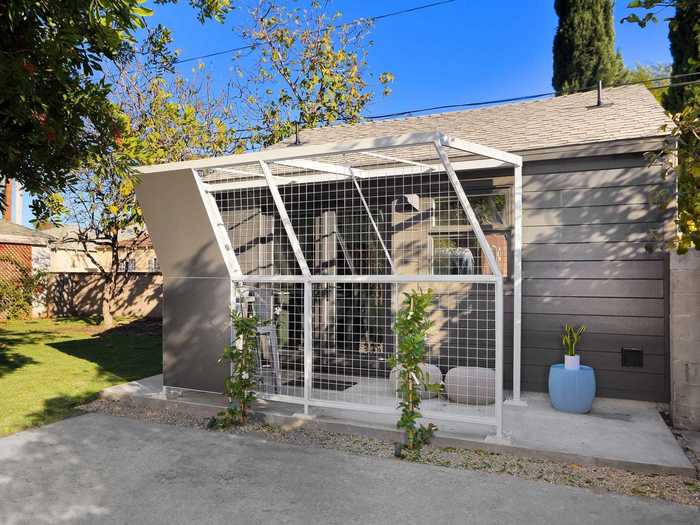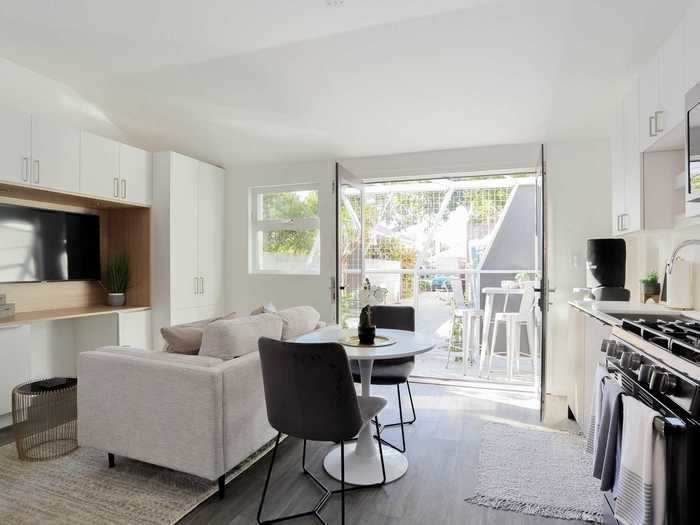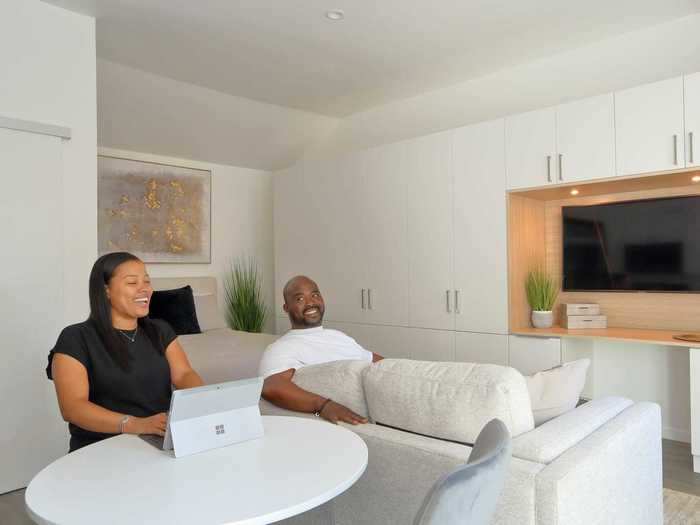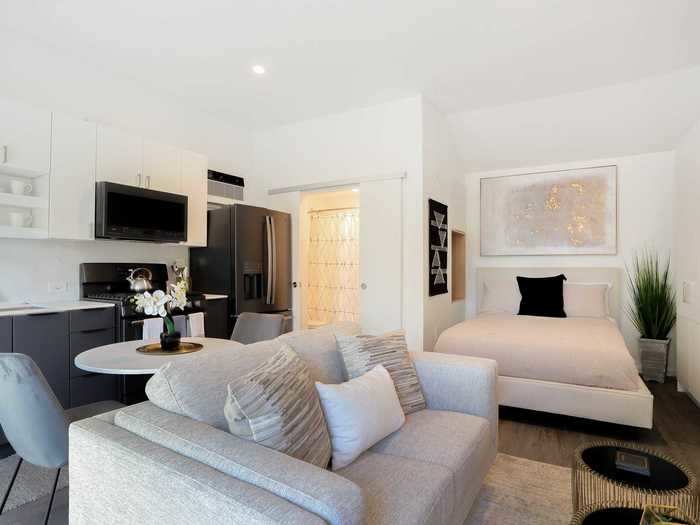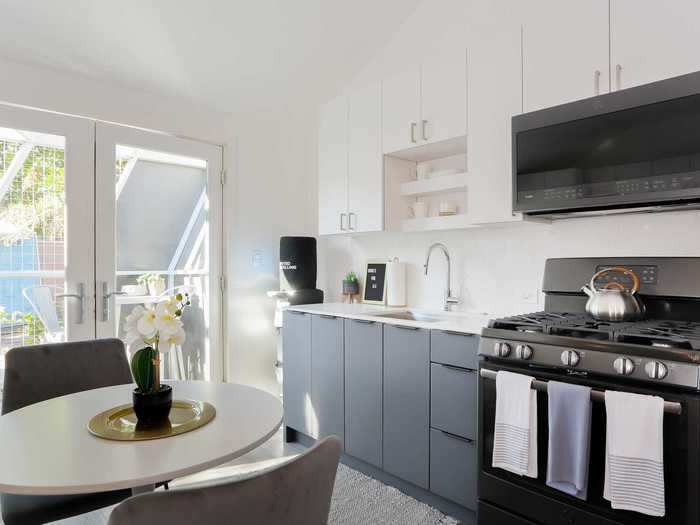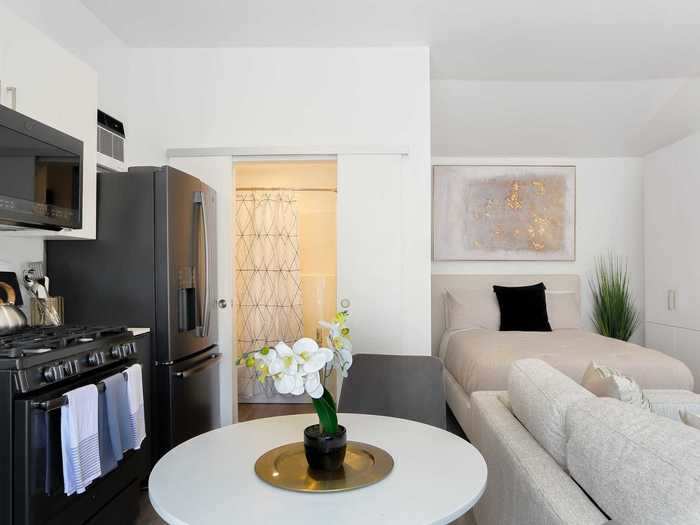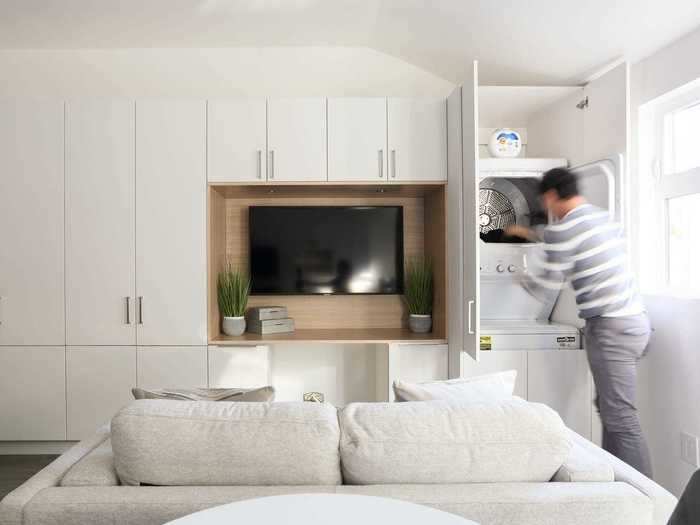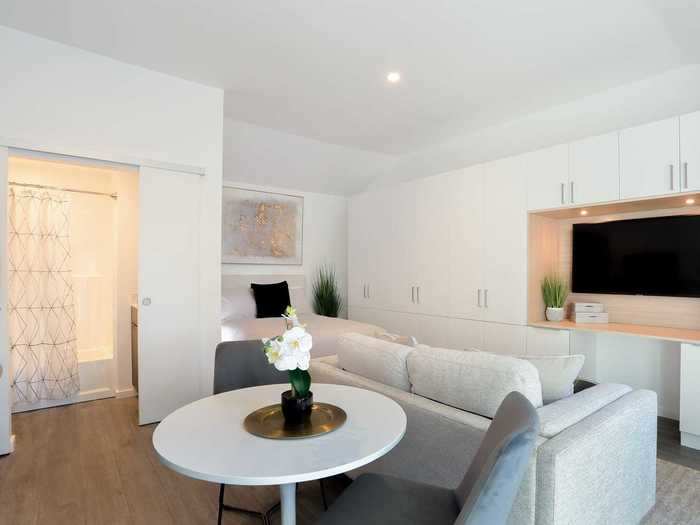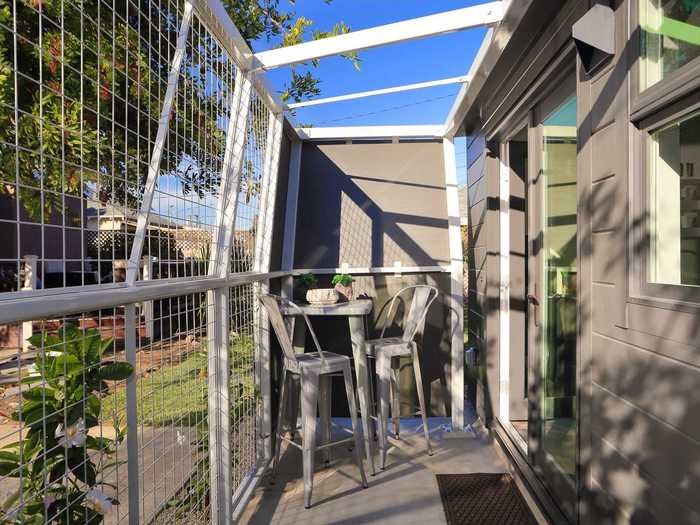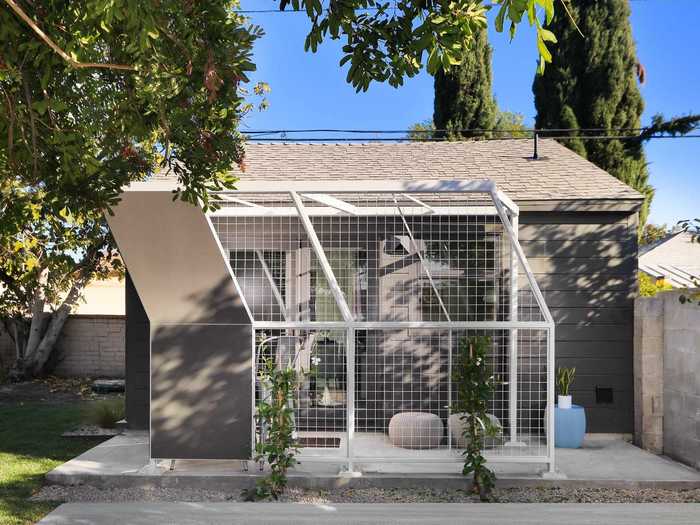A startup wants to turn your garage into a tiny home and give you $500 a month to help quell a crushing housing shortage. Here's what the homes look like.
Katie Canales
- A California startup is aiming to turn your unused garage or backyard space into affordable tiny homes to rent out to tenants for $1,300 to $2,100 a month, depending on the neighborhood.
- The units are studio homes, with a full kitchen, laundry facilities, and a private patio.
- The startup would share the rental income with homeowners, who could make $500 to $1,500 a month depending on the average median income of their neighborhood.
- The state of California has long been plagued by an affordable housing crisis, and an increase in supply could help lower costs over time.
A California startup wants to build tiny homes in your backyard, rent them out, and give you an extra source of income of upwards of $500 a month.
United Dwelling partners with local communities and homeowners to transform unused backyard space and garages into affordable, 369-square-foot tiny homes. They would then be rented out for between $1,300 and $2,100 to a tenant vetted in part by the homeowner.
The company was founded by Steven Dietz, formerly of Upfront Ventures, which backed the likes of PetSmart and Ulta Beauty. United Dwelling just raised $10 million in a Series B funding round led by Alpha Edison with participation from Lightspeed Ventures, bringing its total funding amount to $12.2 million, according to Crunchbase.
The capital will in part be put towards the installation of more than 150 units in Southern California by the end of the year and 1,500 more by the end of 2021, as long as COVID-19 shutdown restrictions allow construction to move forward.
Here's what the tiny home looks like.
Read the original article on Business InsiderREAD MORE ARTICLES ON
Popular Right Now
Popular Keywords
- India’s wearables market decline
- Vivo V40 Pro vs OnePlus 12R
- Nothing Phone (2a) Plus vs OnePlus Nord 4
- Upcoming smartphones launching in August
- Nothing Phone (2a) review
- Current Location in Google
- Hide Whatsapp Messages
- Phone is hacked or not
- Whatsapp Deleted Messages
- Download photos from Whatsapp
- Instagram Messages
- How to lock facebook profile
- Android 14
- Unfollowed on Instagram
Advertisement

